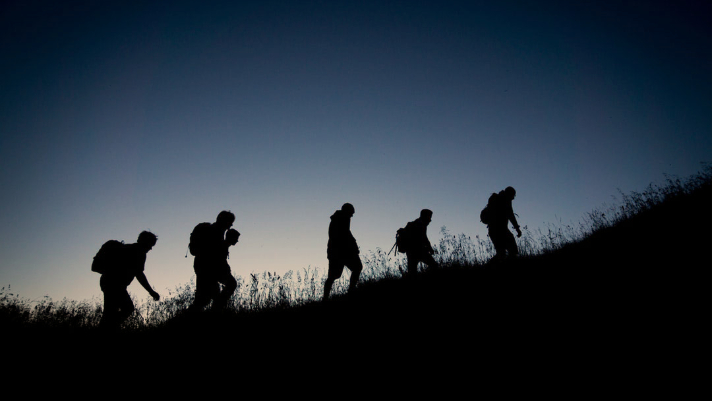The Right to Peace: Forced Displacement and Migration
The theme for the 2018 International Day of Peace (Friday, Sept. 21) is The Right to Peace – The Universal Declaration of Human Rights at 70.
The Universal Declaration of Human Rights was adopted by the United Nations General Assembly in Paris on Dec. 10, 1948, to recognize “the inherent dignity and equal and inalienable rights of all members of the human race.”
To honour this year’s theme Project Ploughshares will present, each day this week, an aspect of the work we do, work that is rooted in the belief that every human being has a right live in peace and security.
Read Monday’s post on Nuclear Disarmament
Read Tuesday’s post on Killer Robots
Globally, there are an estimated 68.5 million people who have fled their homes either as refugees (25.4 million), internally displaced persons (40.0 million), or asylum seekers as a result of conflict, generalized violence and persecution (UNHCR, 2017).
CHANGING NATURE OF WAR
The changing nature of contemporary warfare demands a close re-examination of the humanitarian impacts of war and weapons on civilians and human security. So, in 2015, Project Ploughshares introduced a new program on forced displacement and migration, focusing in particular on displacement caused by armed conflict. This is examined by mapping and analyzing the root causes of forced displacement driven from war and armed violence. This undertaking was deemed a critical extension of Project Ploughshares’ mandate to advance policies and strengthen advocacy to prevent war and armed violence, and build sustainable peace.
THE OBJECTIVES FOR THIS NEW PROGRAM
- Research drivers of conflict-induced forced displacement to illustrate the intersections of conventional weapons, emerging technologies in warfare, and armed conflicts.
- Examine durable solutions and programs that draw on Canada’s feminist international assistance policy for women, men, girls, and boys and the UN’s Sustainable Development Goals, in particular Goal 16: Peace, justice, and strong institutions.
- Engage with the humanitarian disarmament community to place considerations of forcibly displaced persons, refugee rights and migrant rights at the centre of dialogue and practice.
- Identify evidence-driven policies on which Canada should base its response to displacement crises.
- Advocate for the resolution of wars and armed violence that are the principal drivers of forced displacement (the internally displaced and refugees).

